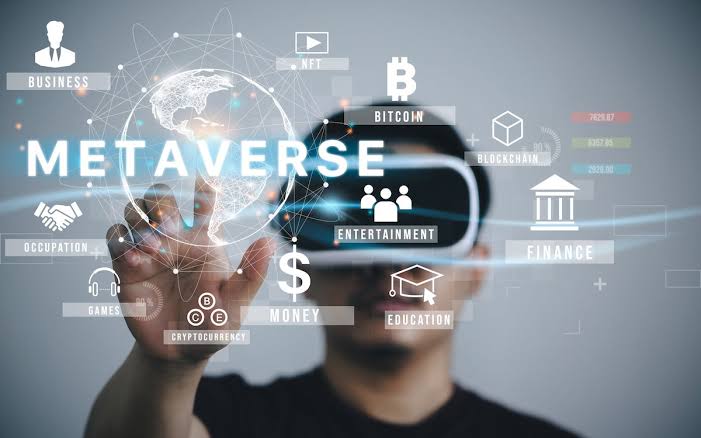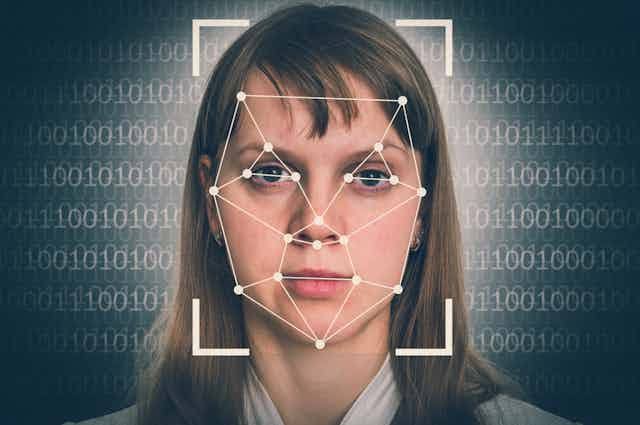
Data, Privacy, and Security: The Cost of Making Technology
As technology advances, the balance between convenience and privacy becomes increasingly delicate. Personal data is often the currency that powers digital services, leading to ethical and security challenges. With the rise in data breaches and misuse, both users and governments must take active roles in protecting privacy. While complete security is nearly impossible, awareness, regulation, and responsible innovation can help build a safer digital future that respects users’ rights and data.
✨ Raghav Jain

Introduction
Technology has revolutionized the way we live, work, and connect with the world. From the moment we wake up and check our phones to the time we use smart devices to control our homes or track our health, our lives are intertwined with digital convenience. But behind every tap, swipe, and voice command lies an invisible cost—our data, privacy, and security.
In the race to create smarter, faster, and more efficient technologies, we’ve opened the gates to a new kind of vulnerability. Cyberattacks, surveillance, data leaks, and algorithmic manipulation are no longer rare—they are the reality of the digital age. In this article, we’ll dive into the hidden costs of modern tech, explore how it affects our personal and collective freedom, and discuss ways we can protect ourselves in an increasingly connected world.
Understanding the Digital Trade-Off
Every time we use a digital service—be it social media, navigation, or online shopping—we exchange something valuable: our data. This data fuels algorithms, personalizes experiences, and powers tech ecosystems. But this convenience comes at a cost.
What Are We Really Giving Up?
- Personal Information: Name, age, email, phone number
- Behavioral Data: Browsing habits, purchase history, time spent on apps
- Location and Biometric Data: GPS tracking, facial recognition, fingerprints
- Sensitive Information: Health records, financial transactions, private messages
This data is stored, analyzed, and often shared with third parties, making users more vulnerable than they realize.
Why Companies Want Your Data
- To personalize content and ads
- To improve product design and performance
- To create predictive models and sell insights
- To monetize through third-party data sharing
The more detailed your digital footprint, the more valuable it becomes—and the more at risk you are.
Privacy: The Vanishing Concept
In the early days of the internet, privacy felt more controllable. Today, with AI, big data, and machine learning, privacy has become more abstract and difficult to guard.
How Privacy is Compromised
- Consent fatigue: Users click “Agree” without reading terms
- Tracking cookies and pixels: Monitor online activity even across different sites
- Always-on devices: Smart speakers and phones are constantly listening
- Data breaches: Millions of users’ personal information exposed due to poor cybersecurity
Even when apps are deleted or accounts closed, traces of data often remain in corporate servers or backups.
Real-World Examples
- Facebook-Cambridge Analytica scandal: User data used to influence elections
- Location tracking by weather and flashlight apps
- Leaked database of Aadhaar (India’s biometric ID system) compromising citizen data
Privacy today isn’t just about what you choose to share—it’s about what’s being collected without your knowledge.
Security: The Silent Crisis
Cybersecurity is one of the biggest challenges of our digital era. As we rely more on tech, we also expose ourselves to hackers, identity theft, and cyber warfare.
Common Cybersecurity Threats
- Phishing attacks: Fake emails or links to steal credentials
- Ransomware: Hackers lock your files and demand payment
- Data breaches: Information leaks from unsecured servers
- Man-in-the-middle attacks: Intercepting data between users and websites
These threats target not just individuals, but also hospitals, schools, banks, and government institutions.
Why Security Fails
- Weak passwords and outdated software
- Lack of user awareness about scams
- Insufficient investment in cybersecurity by organizations
- Overdependence on third-party apps and APIs
When security fails, the consequences are not just technical—they can be deeply personal and financially devastating.
The Role of Government and Regulation
To balance innovation with safety, governments around the world have begun introducing laws to protect users' rights. However, regulation often lags behind technological advancement.
Key Data Protection Laws
- GDPR (Europe): Gives users control over personal data and demands transparency from companies
- CCPA (California): Allows users to know and delete the data companies collect
- DPDP Bill (India): Focuses on consent, data processing, and penalties for misuse
While these laws offer a framework, enforcement and global standardization remain major challenges.
Challenges in Regulation
- Cross-border data flow complicates jurisdiction
- Tech companies lobby against strict privacy laws
- Users often unaware of their rights or how to exercise them
Strong regulation is essential, but so is user education and corporate accountability.
Big Tech’s Responsibility
Tech giants like Google, Apple, Amazon, Meta, and Microsoft hold immense power over our digital lives. With this power comes responsibility—but not all companies live up to it.
What Big Tech Must Do
- Implement end-to-end encryption and stronger authentication
- Avoid dark patterns that trick users into sharing more
- Offer transparent privacy settings and clear opt-outs
- Stop harvesting unnecessary user data
Some companies have taken steps (e.g., Apple’s App Tracking Transparency), but others still prioritize profit over protection.
The Ethics of Data Collection
There’s a fine line between personalization and manipulation. When tech is used to influence behavior, push political agendas, or exploit psychological vulnerabilities, it becomes an ethical issue—not just a legal one.
The Human Cost: Psychological and Social Impact
Beyond privacy and security, there’s a deeper emotional cost to living in a hyper-connected, data-driven world.
Effects on Mental Health
- Constant surveillance can lead to anxiety and stress
- Fear of being watched can change behavior (known as the “chilling effect”)
- Social media algorithms can cause comparison, depression, or addiction
People are slowly realizing that the trade-off for free content or easy convenience is a loss of control over personal space and thought.
Social Consequences
- Targeted misinformation and polarization
- Digital profiling and discrimination (in job hiring, lending, or policing)
- Loss of trust in online systems and institutions
These issues highlight that the cost of technology isn’t just digital—it’s deeply human.
Protecting Yourself in a Digital World
While the system may not be perfect, individuals can take steps to protect themselves and reclaim some control.
Actionable Tips for Users
- Use strong, unique passwords and enable two-factor authentication
- Regularly update your devices and apps
- Be cautious of suspicious links or emails
- Use private browsing, VPNs, and ad blockers
- Review and adjust privacy settings on every app and platform
- Avoid oversharing personal details online
Empowerment starts with awareness. Small habits can go a long way in safeguarding your digital presence.
Support Ethical Tech
- Choose platforms that prioritize privacy
- Support startups and services with transparent data policies
- Advocate for digital literacy and ethical innovation
As users, our choices influence the market. Demand for privacy-conscious tech can push companies to change.
Conclusion
The digital world offers incredible convenience, but it comes with invisible strings—our data, our privacy, and our security. As technology becomes more advanced, the risks become more complex. Understanding these costs isn’t about resisting innovation; it’s about using it responsibly.
We must rethink our relationship with technology—not as passive consumers, but as informed participants. Governments, companies, and individuals all have a role in creating a safer, more ethical digital environment. By staying informed and taking proactive steps, we can enjoy the benefits of technology without surrendering our rights and well-being.
In the end, the goal is not to fear the future—but to shape it with awareness, intention, and integrity.
Q&A Section
1. What is the relationship between technology and personal data?
Ans:- Modern technology relies heavily on collecting personal data to enhance user experiences, deliver personalized content, and improve services. From search engines to social media platforms, user data is constantly being gathered and analyzed.
2. Why is privacy a major concern in today’s digital world?
Ans:- Privacy is a concern because individuals often unknowingly share vast amounts of personal information online, which can be misused by companies, hackers, or third parties without consent or knowledge.
3. How do companies use the data they collect from users?
Ans:- Companies use collected data for targeted advertising, improving products, predicting consumer behavior, and enhancing user engagement. While this can benefit users, it also raises questions about consent and ethical data use.
4. What are some common threats to digital privacy and security?
Ans:- Threats include data breaches, phishing attacks, identity theft, malware, and surveillance. These risks can lead to financial loss, emotional distress, and loss of trust in technology.
5. How can users protect their personal data online?
Ans:- Users can protect themselves by using strong passwords, enabling two-factor authentication, avoiding suspicious links, updating software regularly, and being cautious about the information they share online.
6. What is the role of government in data privacy?
Ans:- Governments are responsible for creating and enforcing laws that regulate data collection, ensure user privacy, and hold companies accountable. Laws like GDPR in Europe and India’s Digital Personal Data Protection Act are examples.
7. Are terms and conditions truly transparent for users?
Ans:- Most users do not fully read or understand terms and conditions, which often contain complex legal jargon. This lack of transparency makes it difficult for users to make informed decisions about their data.
8. How does the cost of free services relate to data privacy?
Ans:- Many free services are funded through data monetization, meaning that users "pay" with their personal information. This trade-off between free access and privacy is often hidden or unclear.
9. Can cybersecurity fully eliminate data breaches?
Ans:- While cybersecurity measures significantly reduce risks, no system is completely foolproof. Constant innovation in hacking techniques means that even the most secure systems can be vulnerable.
10. What can be done to make technology safer and more ethical?
Ans:- Solutions include stronger data protection laws, ethical tech development, greater transparency from companies, user education, and empowering individuals with tools to control their own data.
Similar Articles
Find more relatable content in similar Articles
Explore Other Categories
Explore many different categories of articles ranging from Gadgets to Security
Smart Devices, Gear & Innovations
Discover in-depth reviews, hands-on experiences, and expert insights on the newest gadgets—from smartphones to smartwatches, headphones, wearables, and everything in between. Stay ahead with the latest in tech gear
Apps That Power Your World
Explore essential mobile and desktop applications across all platforms. From productivity boosters to creative tools, we cover updates, recommendations, and how-tos to make your digital life easier and more efficient.
Tomorrow's Technology, Today's Insights
Dive into the world of emerging technologies, AI breakthroughs, space tech, robotics, and innovations shaping the future. Stay informed on what's next in the evolution of science and technology.
Protecting You in a Digital Age
Learn how to secure your data, protect your privacy, and understand the latest in online threats. We break down complex cybersecurity topics into practical advice for everyday users and professionals alike.
© 2025 Copyrights by rTechnology. All Rights Reserved.

